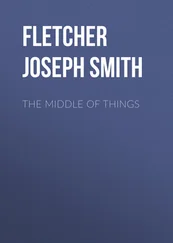Jose Luis Peixoto
The Implacable Order of Things
TODAY THE WEATHER DIDN’T fool me. The afternoon is perfectly still. The air scorches, as if it were a waft of fire and not just the air we breathe, as if the afternoon refused to die and the hottest hour had begun. There are no clouds, just wispy white streaks unraveled from clouds. And the sky, from down here, looks cool, like the clear water of a dammed stream. I think: perhaps the sky is a huge sea of fresh water and we, instead of walking under it, walk on top of it; perhaps we see everything upside down and the earth is a kind of sky, so that when we die, when we die, we fall and sink into the sky. This sky that’s a bottomless stream without fish. The clouds just hazy threads. And the air an inwardly burning fire. Hot, invisible flames that make our skin swelter. Air that, like a tired man, doesn’t even stir.
A time will come when not a sparrow can be seen, when nothing can be heard but the silence of everything watching us. The time will come. I’ll see it on the horizon. As surely as I realize this now, I realized it yesterday when I entered Judas’s general store and ordered my first and my second and my third glass. I realized that all across the plain the cicadas and crickets will fall silent. The slenderest twigs of the olive and cork trees will stop climbing into the sky; from one moment to the next they’ll turn to stone.
IT WAS NIGHT WHEN JOSÉ ENTERED Judas’s general store. He still wore sun-bleached clothes on his body, the earth’s ochre light on his skin, and a reverent smile on his face. He was preceded by the blunt, dirty tip of his shepherd’s staff. His tired sheepdog, a new mother whose swollen teats and bloated belly almost touched the ground, followed him. He set down the sack that was slung over his shoulder by a rope and leaned against the counter. A glass of red wine. The few men who greeted him muttered languishing, indecipherable syllables. The others, without interrupting their talking and drinking and card playing, merely turned their heads to look at him. The dog rested her ribs on the ground, curved her spine in an arch of vertebrae showing through her fur, and lowered her eyelids over her passive brown eyes.
In the moment that José raised his glass and downed the wine in one fell swoop, the men in Judas’s general store as seen from the other side of the square, as seen from the night and from silence, were the open space of a doorway; they were a tenuous path of light trying to advance across the vacant square and the black, black night; they were a place of indistinct words trying to enter the vacant square and the black, black silence. José set his empty glass on the counter, and next to him, under the dim light and the racket of words, the devil’s idle smile instantly took shape. The devil smiling. He was the only one who didn’t have sun-darkened skin, whose shirt was ironed, trousers creased, hair combed between his cap and his slightly protruding horns. He was the only one who smiled. Two glasses of red wine, he ordered with a smile. José didn’t need to look at him. In silence he waited for the two glasses that were filled to the absolute brim. While they drank, the devil didn’t take his eyes off José, and he seemed, even while drinking, to smile a faint smile that divided and multiplied into a thousand smiles, a thousand faint smiles. The men continued, or seemed to continue, their unending conversations and unending card games, stopping only to glance at the changes in José’s face and at the tempter’s taunting grin, or to spit out the damp remains of their hand-rolled cigarettes. And José’s face changed. Successive glasses gradually filled him with an irrational happiness, the happiness of carnival and masqueraders. The devil smiling. With a smile he asked how are you, I haven’t seen your wife around, where is she? José’s eyes flared, and he stopped tittering to answer she’s where she should be, where she always is. The men’s crisscrossing voices were now an ocean of words rolling in waves over their heads, waves that began with a drone and swelled in a far-reaching din before retreating, leaving behind vestiges of words in the air, worthless and jumbled-up syllables like old things in a compost pile. Always? asked the devil, smiling and laughing. José fell silent, and the men fell silent to hear the answer he didn’t utter. Two more glasses of red wine, the devil insisted. You know, he went on, still smiling, the giant told me that he knows her better than you do, that he knows better than you where she is, where she spends her time. From the white distance of his alcoholic aura José stopped to grasp the words. Under the hovering dust the men opened their tiny eyes like moles and tried to laugh but didn’t know how, they just grunted. I’m sick of that giant’s lies, José answered; my wife is where I know she is, where she always is; the next time you see him, tell the giant to show his face, tell him to show me his face. And he raised his fist high, striking it long and loudly on the counter. The dog got up and slowly walked out. Tell him to show me his face, José repeated, and I’ll smash it in. The men’s expressions froze for a moment, and then, as if on cue, they all started to dance in unison, whirling in a circle around José. And José, who could barely make out their blurred outlines and colors, once more radiated happiness in his face, and he whirled and danced, fell and fell, and stood up to dance again. In a corner the devil smiled, finally satisfied in his smiling.
THIS SILENT WAITING UNNERVES ME. The last sheep has lain down next to the curled-up bodies of other sheep, beneath the big old cork tree. I think: men are sheep that don’t sleep, sheep that on the inside are wolves. The sun is still sun, its fire persists, in the air’s and the earth’s slow combustion. In the same shade as me, leaning against the same trunk, my staff resembles a person eyeing me with pity. My dog, in front of me, occasionally lifts her heavy gaze, likewise aware of what’s going to happen.
THE DOG SOLEMNLY WALKED AHEAD of José’s uncertain steps, stopping now and then to wait for him. The sky overhead became darker, blacker, once they were outside the town and on the sand-covered road leading to the farmstead, the Mount of Olives. The din of the men’s shouting in Judas’s general store continued to sound in José’s dazed head. In the night’s scant clarity his silhouette was that of a strange animal with three or four legs, depending on whether he was propped up by his staff or crawling on all fours. Plodding forward in this way, he began to be suspicious of the scrub and underbrush in the ditches. One moment he would attack the brush and its invisible phantoms with his staff, slugging away at himself on the ground; the next moment he would start running and feel his suddenly enormous feet trip over each other.
From the fence that bounded the farmstead he saw the sun rising over the roof of the rich people’s house. Like the darkness, the alcohol in José had slowly dissipated and given way to light. He regained his clarity of mind and once more felt the weight of sobriety. Looking into the sun, José paused to collect his certainties of what lay ahead. He stood there awhile. Then climbed the slope. Once they’d passed through the gate, the dog relaxed, making her way to the washtub and plopping down underneath it. José’s house, whitewashed and with yellow trim, lay a few yards beyond the rich people’s house, at the back of the courtyard, behind the waterwheel and a small garden that the rich woman liked to see kept up. With his eyes fixed on the front door of his house, José walked through the yellowed garden, pushed aside the beads, and crossed over the threshold. In the night that still lingered in the bedroom, without breaking the silence generated by the presence of things, José made out his wife on the bed and remembered the devil’s smile and the devil’s words. His wife’s head against the pillow, her hair against the pillow, were what he had conquered and were also what eluded him. He turned to the crib, and his gentle movements became even gentler. His son’s innocent face glowed in José’s breast and in his tender gaze. Looking at his own hands, he suddenly felt that they were too rough to touch the baby’s soft, smooth skin. Obsessed by the certainty that gnawed at him and gnawed at him, he went back outside.
Читать дальше












